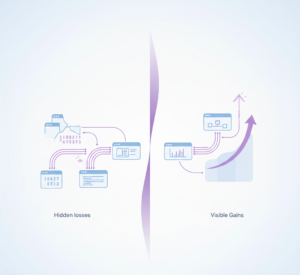A Modern Guide for First-Time Owners
Starting a home care agencies can feel overwhelming—and you’re not alone if you’ve felt that way. Between navigating complex regulations, managing caregiver schedules, and ensuring quality care for families who trust you with their most precious loved ones, the responsibility can seem daunting. But here’s the truth: thousands of compassionate entrepreneurs just like you have built thriving home care businesses that make a real difference in their communities.
Whether you’re taking your first steps into the home care industry or you’re a struggling agency owner looking to regain control, this guide is designed to walk you through the essential steps with clarity and confidence. We’ll explore not just how to start a home care agency, but how to build one that thrives in today’s evolving landscape—where technology, compliance, and exceptional care intersect to create sustainable success.
The journey ahead isn’t always easy, but it’s deeply rewarding. Let’s simplify the path forward and help you focus on what matters most: providing exceptional care while building a business you’re proud of.
The Opportunity in Home Care
The home care industry is experiencing unprecedented growth, and the timing has never been better for entrepreneurs entering this space. By 2030, the U.S. Census Bureau projects that all baby boomers will be 65 or older, creating an estimated 73 million seniors who will need various levels of care and support.
What’s driving families toward in-home care? The answer is both practical and deeply personal. Seniors overwhelmingly prefer to age in place—studies show that 90% of adults over 65 want to remain in their homes as they age. In-home care allows families to maintain dignity, independence, and familiar surroundings while receiving the support they need.
The financial landscape also favors home care agencies. Medicaid waiver programs across all 50 states now provide funding for home and community-based services, recognizing that in-home care is often more cost-effective than institutional care. These programs have opened doors for agencies to serve clients who might not otherwise afford private-pay services, creating sustainable revenue streams while serving those who need care most.
Additionally, the rise of chronic conditions requiring ongoing management—from diabetes to heart disease—has created demand for consistent, skilled support that home care agencies are uniquely positioned to provide. Families are discovering that professional caregivers can offer specialized attention that busy family members simply can’t provide consistently.
This isn’t just a business opportunity—it’s a chance to be part of a solution that keeps families together and communities strong.
What You Need to Start a Home Care Agency
Starting a home care agency requires careful planning and attention to legal requirements that vary significantly from state to state. The good news is that with proper preparation, the startup process is entirely manageable.
Legal Requirements and Licensing
First, you’ll need to determine whether you’re starting a non-medical home care agency or a home health agency. Non-medical agencies provide companionship, meal preparation, transportation, and personal care assistance, while home health agencies offer skilled medical services. Most first-time owners begin with non-medical care, which typically has simpler licensing requirements.
Every state has different licensing procedures, so your first step should be contacting your state’s health department or aging services division. Some states require specific business licenses, while others have minimal requirements for non-medical agencies. Don’t skip this research—operating without proper licensing can result in serious legal consequences.
You’ll also need comprehensive insurance coverage, including general liability, professional liability, and workers’ compensation. Many agencies also carry bonding insurance to protect clients’ belongings.
Developing Your Home Care Business Plan
A solid business plan is your roadmap to success. Define your niche clearly: Will you specialize in Alzheimer’s care, post-surgical support, or general companionship services? Each specialization requires different training, marketing approaches, and operational considerations.
Your business plan should include detailed financial projections, including startup costs (typically ranging from $10,000 to $50,000 for a non-medical agency), ongoing operational expenses, and realistic revenue forecasts. Consider factors like caregiver wages, insurance costs, office expenses, and marketing budgets.
Funding Your Startup
Many successful agencies start small and bootstrap their growth, beginning with a handful of clients and gradually expanding. Others pursue small business loans or seek investors. Some entrepreneurs leverage personal savings or family support to get started.
Consider the Medicaid waiver program opportunities in your state, as these can provide steady revenue streams once you’re established and meet program requirements. However, don’t count on Medicaid contracts for initial funding—the application and approval process can take months.
Building Your Foundation
Establish your business structure (LLC, corporation, etc.) and obtain necessary tax identification numbers. Set up basic accounting systems from day one—financial organization is crucial for compliance and growth. Create policies and procedures for everything from hiring to emergency protocols.
Remember that every successful home care agency started with one client and one caregiver. Focus on building a strong foundation rather than trying to scale too quickly in the early days.
Hiring and Managing Caregivers with Compassion and Control
Your caregivers are the heart and soul of your home care agency. They’re the ones building relationships with clients, providing daily support, and representing your agency’s values in the community. Getting your hiring and management approach right from the beginning will determine your long-term success.
Recruiting the Right People
Look beyond just experience and certifications—though those matter. The best caregivers possess genuine compassion, reliability, and strong communication skills. They understand that they’re not just providing services; they’re often becoming trusted companions to vulnerable individuals and worried family members.
Develop a thorough interviewing process that includes scenario-based questions. How would they handle a client who refuses to take medication? What would they do if they arrived to find a client on the floor? These situations test both practical knowledge and emotional intelligence.
Training and Retention
Invest in comprehensive training that goes beyond state requirements. Cover not just care techniques, but also communication with families, documentation requirements, and emergency procedures. Many successful agencies provide ongoing training opportunities, which helps with both skill development and caregiver retention.
Retention is critical in home care, where high turnover creates instability for clients and increases your costs. Pay competitive wages, offer flexible scheduling when possible, and create a supportive work environment where caregivers feel valued and heard.
Smart Scheduling Solutions
One of the biggest operational challenges in home care is managing complex schedules while ensuring adequate coverage. Missed shifts and last-minute cancellations can quickly damage your reputation and stress your team.
Modern caregiver scheduling software has revolutionized how agencies manage their workforce. These tools can automatically match caregivers with clients based on skills, location, and preferences while sending automated reminders and updates. When schedule changes occur, smart systems can instantly notify backup caregivers and update all relevant parties.
The result is less administrative chaos for you and more consistent, reliable service for your clients—exactly what families are looking for when they choose your agency.
Operational Pitfalls That Sink Home Care Agencies
Understanding what causes agencies to struggle—or fail—can help you avoid these costly mistakes. Most operational problems stem from a few common issues that are entirely preventable with proper planning and systems.
The Documentation Disaster
Poor documentation practices create multiple problems. First, incomplete or inaccurate care records can jeopardize client safety and your agency’s liability coverage. Second, documentation errors can trigger compliance issues during state inspections or Medicaid audits. Third, missing documentation makes it difficult to demonstrate the quality of care you’re providing, which impacts family satisfaction and referral opportunities.
Establish clear documentation standards from day one. Train caregivers on proper record-keeping, and implement systems that make documentation simple and consistent.
The Scheduling Nightmare
Agencies that rely on manual scheduling methods—spreadsheets, phone calls, and paper schedules—often find themselves in constant crisis mode. Missed shifts, double-bookings, and communication failures create stress for everyone involved and can quickly damage your reputation.
The solution isn’t just better organization—it’s implementing systems that reduce the potential for human error while improving communication between your office, caregivers, and families.
Compliance Confusion
Many agency owners underestimate the complexity of regulatory compliance, particularly as they grow and begin serving Medicaid waiver clients. Electronic Visit Verification (EVV) requirements, caregiver background checks, training documentation, and care plan updates all require systematic attention.
Compliance isn’t just about avoiding penalties—it’s about demonstrating that you’re providing safe, reliable care. Agencies that struggle with compliance often find themselves unable to grow or participate in lucrative Medicaid programs.
Financial Mismanagement
Cash flow challenges, inaccurate billing, and poor expense tracking can sink even well-intentioned agencies. Many owners focus so heavily on care delivery that they neglect the business fundamentals that keep doors open.
All of these pitfalls share a common theme: they’re systems problems, not people problems. The good news is that systems problems have systems solutions.
Embracing Automation and Intelligent Tools
The most successful modern home care agencies understand a fundamental truth: technology doesn’t replace the human touch—it amplifies it. By automating routine tasks and streamlining operations, you create more time and energy to focus on what matters most: exceptional care and meaningful relationships.
Why Automation Matters in Home Care
Running a home care agency involves countless moving pieces: scheduling caregivers, tracking care hours, managing payroll, documenting services, ensuring compliance, billing clients, and communicating with families. When handled manually, these tasks consume enormous amounts of time and create multiple opportunities for errors.
This is what we call the “Caring Tax™”—the hidden cost of administrative burden that prevents agency owners from focusing on growth and care quality. Every hour spent on manual scheduling or compliance paperwork is an hour not spent developing your team, building relationships with referral sources, or improving services.
Smart Scheduling and Coordination
Modern scheduling platforms do more than just assign caregivers to shifts. They consider caregiver preferences, client needs, geographic efficiency, and skill matching. When changes occur—and they will—intelligent systems can immediately identify and notify qualified backup caregivers, update families, and adjust related schedules.
The result is what successful agencies describe as “Care Without Fear”—the confidence that comes from knowing your operations are reliable and your clients are consistently served, even when unexpected changes occur.
Electronic Visit Verification and Compliance
EVV requirements have transformed how agencies must track and document caregiver visits. Rather than viewing this as a burden, successful agencies use EVV-integrated platforms that automatically capture required data while providing valuable insights into service patterns and caregiver performance.
These systems don’t just ensure compliance—they provide real-time visibility into your operations. You can identify potential issues before they become problems, recognize outstanding caregiver performance, and provide families with detailed reports about their loved one’s care.
Streamlined Communication
Family communication is often the difference between satisfied clients who refer others and frustrated clients who find new providers. Automated systems can provide families with visit confirmations, care updates, and service summaries without requiring constant manual communication from your staff.
This doesn’t mean removing the personal touch—it means ensuring that routine communications happen consistently while freeing your team to focus on more meaningful interactions and care planning.
The agencies that thrive in today’s market are those that leverage technology to enhance human capabilities rather than replace them.
Scaling with Confidence and Staying Compliant
Growing your home care agency requires balancing ambition with operational stability. Many agencies struggle during growth phases because they try to scale without strengthening the systems that support quality care and regulatory compliance.
The Smart Approach to Growth
Sustainable growth means expanding your capacity while maintaining—or improving—your quality of care. This requires systematic thinking about every aspect of your operations. Before taking on significantly more clients, ensure your training programs can handle more caregivers, your scheduling systems can manage increased complexity, and your compliance processes can scale effectively.
Consider geographic expansion carefully. It’s often better to become the dominant provider in your immediate area before expanding to distant locations that require additional travel time and management attention.
Medicaid Waiver Program Opportunities
Medicaid waiver programs represent significant revenue opportunities for established agencies, but they also require rigorous compliance with state and federal requirements. These programs fund home and community-based services for individuals who would otherwise require institutional care, creating win-win scenarios for agencies and clients.
However, Medicaid contracts aren’t suitable for all agencies. The approval process can be lengthy, reimbursement rates may be lower than private-pay clients, and compliance requirements are extensive. Before pursuing waiver program participation, ensure your agency has robust documentation, scheduling, and quality assurance systems in place.
Audit Readiness and Documentation
Whether you’re serving private-pay or Medicaid-funded clients, maintaining audit-ready documentation should be a constant priority. This means having systems that capture required information automatically, store records securely, and generate reports quickly when requested.
The agencies that excel during audits are those with automated systems that maintain comprehensive, accurate records without requiring constant manual intervention. When inspectors arrive, these agencies can provide requested documentation within minutes rather than scrambling to locate scattered paperwork.
Building Sustainable Operations
As you grow, resist the temptation to handle everything manually “just until we get bigger.” Manual processes don’t scale—they become bigger problems. Instead, implement scalable systems early and grow into them. The agencies that struggle most during growth phases are those that waited too long to systematize their operations.
Successful scaling means creating predictable, reliable operations that don’t depend on heroic efforts from you or your team. When your systems are solid, growth becomes a matter of replicating proven processes rather than constantly inventing new solutions.
Conclusion
Starting and growing a successful home care agency is absolutely achievable—thousands of compassionate entrepreneurs have built thriving businesses that make real differences in their communities. The key is approaching this journey with the right combination of heart and systems, ensuring that your passion for helping others is supported by operational excellence that sustains long-term success.
Remember that every challenge you’ll face has been solved by other agency owners before you. The difference between agencies that struggle and those that thrive often comes down to embracing the tools and systems that reduce administrative burden while improving care quality. You don’t have to choose between being compassionate and being efficient—the best agencies are both.
The home care industry needs more dedicated professionals like you, and families in your community are waiting for the exceptional care you’re planning to provide. Start with solid fundamentals, invest in scalable systems, and never lose sight of why you entered this field: to make a meaningful difference in people’s lives.
Your journey may have challenges, but it doesn’t have to be overwhelming. With proper planning, the right tools, and a commitment to continuous improvement, you can build an agency that provides exceptional care while creating the sustainable business you’ve envisioned.
If you’re looking to simplify operations and focus on what matters most—exceptional care—explore tools like CareBravo built specifically for your journey. The right technology partner can transform your vision of stress-free, high-quality care into your daily reality.





